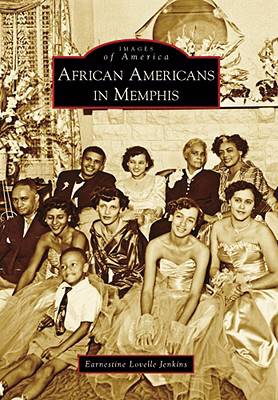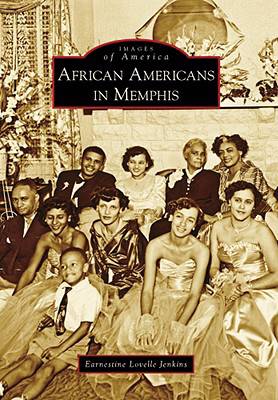
- Afhalen na 1 uur in een winkel met voorraad
- Gratis thuislevering in België vanaf € 30
- Ruim aanbod met 7 miljoen producten
- Afhalen na 1 uur in een winkel met voorraad
- Gratis thuislevering in België vanaf € 30
- Ruim aanbod met 7 miljoen producten
Zoeken
€ 34,95
+ 69 punten
Uitvoering
Omschrijving
Memphis has been an important city for African Americans in the South since the Civil War. They migrated from within Tennessee and from surrounding states to the urban crossroads in large numbers after emancipation, seeking freedom from the oppressive race relations of the rural South. Images of America: African Americans in Memphis chronicles this regional experience from the 19th century to the 1950s. Historic black Memphians were railroad men, bricklayers, chauffeurs, dressmakers, headwaiters, and beauticians, as well as businessmen, teachers, principals, barbers, preachers, musicians, nurses, doctors, Republican leaders, and Pullman car porters. During the Jim Crow era, they established social, political, economic, and educational institutions that sustained their communities in one of the most rigidly segregated cities in America. The dynamic growth and change of the post-World War II South set the stage for a new, authentic, black urban culture defined by Memphis gospel, blues, and rhythm and blues music; black radio; black newspapers; and religious pageants.
Specificaties
Betrokkenen
- Auteur(s):
- Uitgeverij:
Inhoud
- Aantal bladzijden:
- 128
- Taal:
- Engels
- Reeks:
Eigenschappen
- Productcode (EAN):
- 9780738567501
- Verschijningsdatum:
- 1/06/2009
- Uitvoering:
- Paperback
- Formaat:
- Trade paperback (VS)
- Afmetingen:
- 163 mm x 231 mm
- Gewicht:
- 317 g

Alleen bij Standaard Boekhandel
+ 69 punten op je klantenkaart van Standaard Boekhandel
Beoordelingen
We publiceren alleen reviews die voldoen aan de voorwaarden voor reviews. Bekijk onze voorwaarden voor reviews.











